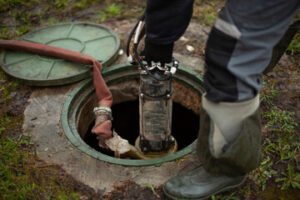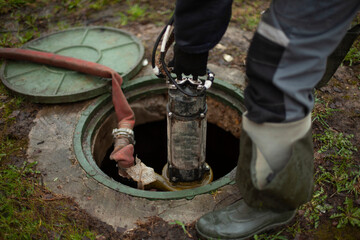Most homeowners cringe at the thought of replacing their sewer pipes. They imagine large ditches, heavy machinery, and destroyed landscapes.
But the good news is that trenchless technology has changed sewer repair. This method offers a faster, cleaner, and more affordable solution to traditional pipe replacement. The first step is determining the extent of damage to your sewer line. For professional assistance, contact Plumber Woodland Hills now!
Tree roots are an integral part of a tree’s health, providing uptake of water and nutrients while also anchoring the trees. However, root growth can be a huge problem for homeowners when they invade the sewer line. Attracted to a sewer line’s water and nutrient source, they will grow into and around the pipe until it eventually clogs or breaks. While a broken or clogged sewer pipe is certainly a serious issue, it’s also important to remember that there are preventative measures you can take to help prevent these issues from occurring.
Typically, the first sign of trouble is a slow draining shower or sink. If these issues persist, a professional can use a plumber’s snake to clear the blockage and determine whether or not roots are the cause of the issue.
Invasive roots are not just a nuisance; they can be extremely dangerous. A weakened or damaged sewer pipe can break apart, causing the release of raw sewage into your home and yard. The damage caused by this can be quite extensive, and may even require a complete replacement of your sewer lines.
When it comes to preventing invasive tree roots from damaging your sewer line, the best thing you can do is keep the trees on your property well-groomed and away from the area where the sewer lines are located. It’s also a good idea to have your pipes inspected regularly with a camera to identify any potential problems before they become an emergency situation.
Most modern plumbing and sewer systems are made with PVC or other types of plastic pipes that are tightly sealed. As a result, they aren’t as susceptible to tree root invasions as older clay pipes. However, even these newer pipes can be subject to damage from tree roots if they have a crack or leak in the line. Taking the time to schedule a routine plumbing checkup and replace your older pipes can save you thousands of dollars in potential repairs down the road.
Corrosion
The metal pipes that make up the sewer system are sturdy and durable, but they’re not indestructible. Like all metal, they corrode over time when they interact with chemicals and natural elements. This corrosion can lead to breaks and other problems with the line. Some signs that a pipe is corroded include low water pressure, high water bills and cloudy or discolored water. A plumber can test your plumbing for corrosion and determine if a repair or replacement is necessary.
While corrosion is inevitable over time, it’s possible to prevent some of the issues that come with aging and wear-and-tear by taking proactive measures. Using a water softener and/or a water filter can help reduce the amount of harsh minerals that travel through your pipes. These minerals can cause clogs and speed up the wear-and-tear process.
A damaged or broken sewer line can lead to sewage spilling out of your home and into your yard, which isn’t just disgusting but is also a health hazard. The toxic waste can contaminate the surrounding soil and water, and it can even get into your drinking water.
Many older pipes are susceptible to corrosion because they were made of steel, iron or unlined concrete. Replacing these pipes with corrosive-resistant materials can help avoid future problems and keep your family safe.
Corrosion can also happen inside your house if the piping is in need of repair or replacement. This can be seen by a clogged drain or toilet that is slow to drain, as well as gurgling noises coming from your bathtub or shower. In these cases, a professional plumber should inspect the plumbing and sewer lines to identify the cause of the issue.
A sewer camera inspection can be used to locate the source of the problem, and a trenchless method such as micro-tunneling or pipe bursting can be used to replace the damaged line without digging up your entire backyard. These methods can be much quicker and more affordable than traditional sewer repairs. If you’re looking for a company that offers comprehensive sewer services, contact us today!
Sewage Smells
Sewage smells can be a sign of problems in your sewer line, and they are certainly not something you want to deal with on a daily basis. A few DIY drain odor eliminators such as baking soda, vinegar, and hot water can help to keep the odors at bay for the time being. However, if your efforts are not successful in eliminating the smells, it is most likely time to call a professional plumber for help.
The most common cause of sewage smells is when the drain trap’s water barrier has dried out. All of the drains in your home should have a water barrier to keep sewage gases from entering the house. This includes both the p-traps found under your sinks and the clean-out plugs at each end of your home’s sewer lines. If you notice that the drains in your home are not containing water or a barrier, it is time to check the clean-out plugs, the p-traps, or the vent system for problems.
If you notice that a particular smell is coming from more than one drain in your home, it could indicate a larger problem in the sewer line itself. This could be a result of broken pipes, clogs, or structural abnormalities in the line itself. If the problem is not addressed quickly, it can lead to more serious issues and a costly sewer line replacement.
Another possible issue that can cause sewage smells is when the oxidizers in the sewage line have been depleted. These oxidizers are added to the sewage to reduce the amount of hydrogen sulfide in it, which can produce foul odors. The oxidizers are typically added in small amounts, which is why they can easily depleted over time.
When the oxidizers in your sewage line are low, it may be time to flush the entire system and add more. This will help to eliminate any odors and also ensure that the oxidizers are distributed evenly throughout the system. A plumber will also be able to determine if this is the best course of action in your situation.
Gurgling Sounds
A gurgling sound in the plumbing is a sign of air or gas trapped in a pipe. This can be caused by a drain clog that is blocking the flow of water or by a vent pipe that has become blocked. The physics are fairly simple: When a clog stops the flow of water, it creates negative pressure in the lower portions of the pipe and a vacuum in the upper sections close to the fixtures. The pressure or vacuum causes a movement of the sewage and air, creating the gurgling sound.
The most common reason for a gurgling sound is a blocked sewer line. This large line takes all the waste from your home’s drains and channels it to the city sewer system. If this clogs, all of your drains will be affected. A clog in the main sewer line is usually beyond your control, and will need to be fixed by your town or the local water company.
Another cause of a gurgling toilet is when the flapper in the tank isn’t working properly. The purpose of the flapper is to open when water flows into the tank and to close when the toilet flushes. If this part doesn’t work, the water won’t flow through the pipe properly and will remain in the tank. This can result in a gurgling noise, as the water in the tank will be moving around without an outlet.
In some cases, a gurgling sound could be coming from the vent stack on your roof. This vertical pipe helps control your plumbing’s air pressure and releases exhaust gas, but it can also get clogged with debris. A clog in the vent stack can affect your plumbing, leading to slow draining and foul sewer smells. It’s best to leave these jobs to professionals, as they have specialized equipment such as cameras that can drop into the vent stack or powerful sewer diggers that can cut right through tree roots and clogged sewer lines.
If you notice a gurgling sound, it is important to act quickly. A clogged sewer line can lead to serious problems, including sewage backups and dangerous health issues for you and your family. A professional plumber will be able to diagnose the issue and give you the best options for repair.


